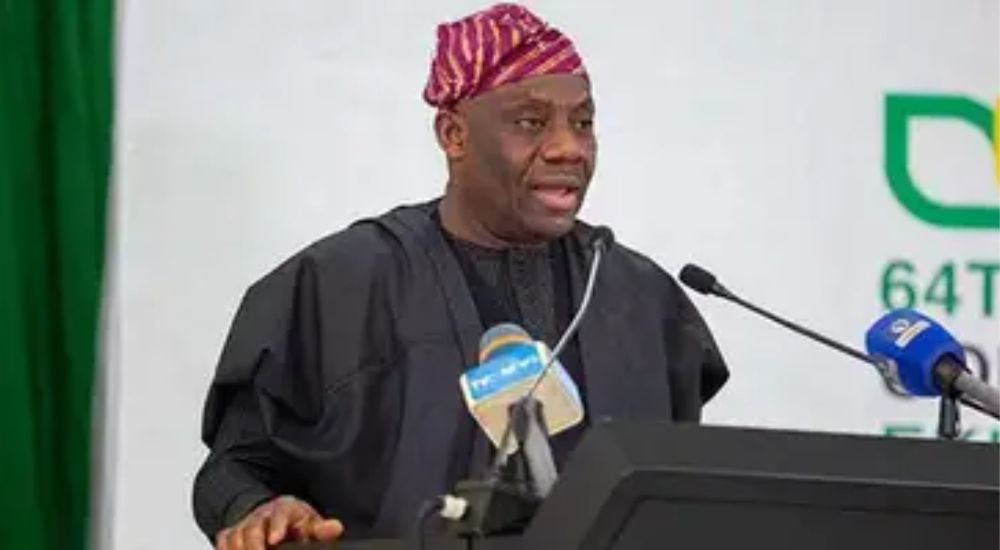The Federal Government has cancelled the national policy mandating the use of indigenous languages as the medium of instruction in schools.
The Minister of Education, Dr Tunji Alausa, said this at the 2025 Language in Education International Conference, organised by the British Council in Abuja on Wednesday.
In 2022, the Federal Government approved a National Language Policy (NLP), which provides that from Early Child Care Education to Primary six, the language of instruction will be in the mother tongue or language of the immediate community.
The policy aims to promote indigenous languages, recognise their equal status, and improve early childhood learning outcomes, while English remains the official language used in later education and formal settings.
Speaking at the conference, Alausa said English is now the language of instruction in Nigerian schools from primary to tertiary levels.
Advertisement
He said Nigerian children had been performing abysmally in public exams as a result of being taught in their mother tongue.
The minister said the decision to cancel the policy followed extensive data analysis and evidence showing that the use of mother tongue as the main medium of instruction had negatively affected learning outcomes in several parts of the country.
“We have seen a mass failure rate in WAEC, NECO and JAMB in certain geopolitical zones of the country, and those are the ones that adopted this mother tongue in an oversubscribed manner.
“This is about evidence-based governance. English now stands as the medium of instruction from the pre-primary, primary, junior secondary, senior secondary and tertiary education levels.”
“Using the mother tongue language in Nigeria for the past 15 years has literally destroyed education in certain regions. We have to talk about evidence, not emotions,” he said.
Advertisement
According to him, data gathered from schools across the country revealed that students taught primarily in indigenous languages recorded higher failure rates in national examinations and struggled with basic English comprehension.
“The national policy on language has been cancelled. English now stands as the medium of instruction across all levels of education,” he declared.
The minister urged stakeholders with differing views to present verifiable data to support their positions, adding that the government remained open to evidence-based dialogue that would strengthen the education sector.
He commended the British Council for its continued partnership with Nigeria in advancing education reforms and promoting inclusive language and learning policies.
The Minister of State for Education, Prof. Suwaiba Ahmed, spoke on other areas of focus by the government to address the teaching and learning crisis at the foundational level of education.
Ahmad said a new training package had been designed for teachers that would help literacy and numeracy learning.
Advertisement
”Now we are designing a training package for the teachers that focuses on the learning of literacy and numeracy.
“This is specifically training teachers that teach across the foundation level from pre-primary to primary one to three.
“We are training them how best to teach literacy, how best to teach numeracy, and of course, the approach,” she said.
Also, the Country Director of the British Council Nigeria, Donna McGowan, pledged the council’s continued support and expertise to Nigeria’s education policies aimed at repositioning the education sector.
“We’re committed to working hand-in-hand with the ministry. We work across all areas of education in terms of supporting teacher professional development, school leadership and language proficiency,” McGowan said.

